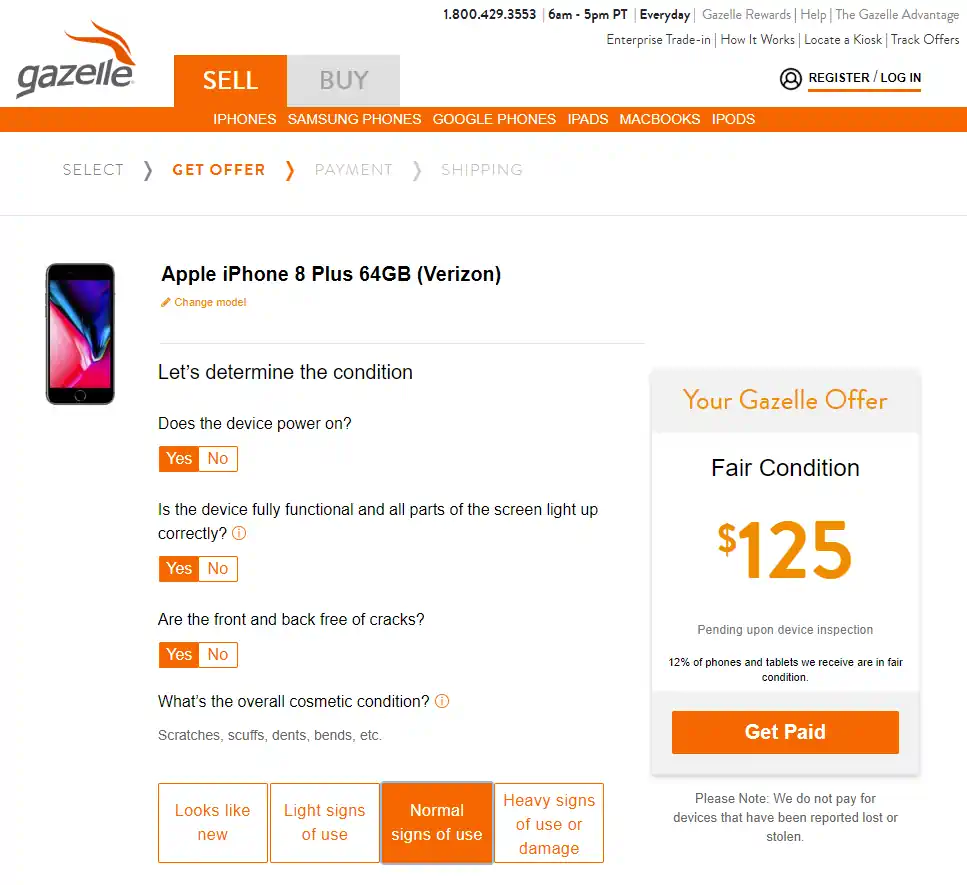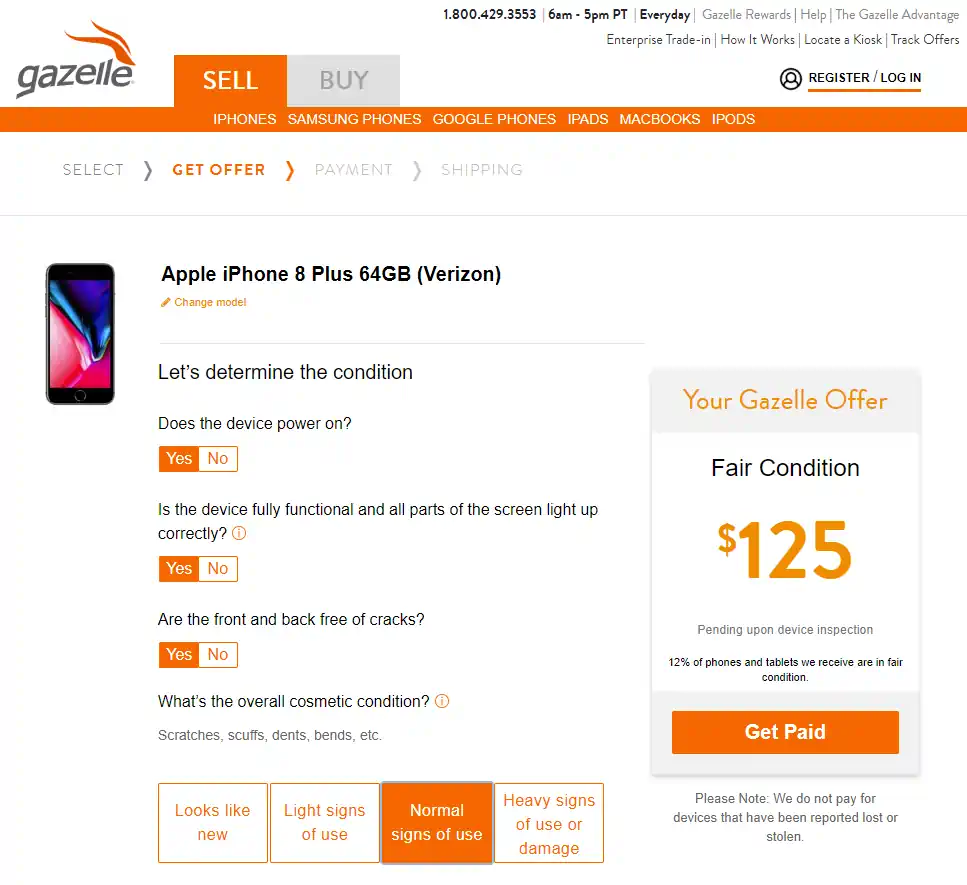
C2B2C explained
C2B2C, an acronym for Consumer to Business to Consumer, is a business model in which a business purchases products from consumers and resells them to other consumers. An example of this is electronics recycling or resale, where the C2B2C business buys used cellphones from consumers, refurbishes them and then resells them.
Alternatively, C2B2C is a business model in which a consumer sells a product directly to another consumer, but using a business as an intermediary. That is, the ownership of goods passes directly from the selling consumer to the buying consumer, but in the middle is a business facilitating the cusstomer's discovery of items for sale and taking a fee for processing the sale transaction. eBay is the classic example of this second form of C2B2C commerce.
In the screenshot below from Gazelle (established 2006 and as of 2014 had paid $200m to 1 million consumers for 2 million devices) a consumer has used the Gazelle website to describe the phone they wish to sell and its condition and an instant quotation is provided that the consumer can choose to accept or reject. Similar companies providing this service include Buyback Boss (founded by Lee Lowden in 2012), MyPhones Unlimited (est. 2013) and Swappa (est. $3.8m revenue).

C2B2C is a significant business opportunity given the need for consumers to recycle their possessions, the convenience and immediacy of being able to sell products to a trusted party at a known price and the desire to buy second hand products from a trusted source including a warranty.
Complications for the C2B2C model include the need to track and process state laws on sales tax. So-called "marketplace facilitators" are required to collect sales tax according to these rules (despite a normal person-to-person sale of used goods being exempt) and this can be difficult to track and ensure compliance. In December 2020, Gazelle announced it was ending its mail-in, trade-in program to focus on a vending machine model, buying from companies with multiple devices to sell, and sales of these devices to consumers.
The C2B2C business model works particularly well in product categories such as electronics, automotive and even housing, where there is an established mechanism for valuing a second-hand product that is generally accepted by both sellers and buyers. The business, operating as the trusted third party, makes a margin from being able to buy and sell on demand and by being the trusted intermediary, removing the risk associated with a consumer buying directly from another consumer.
